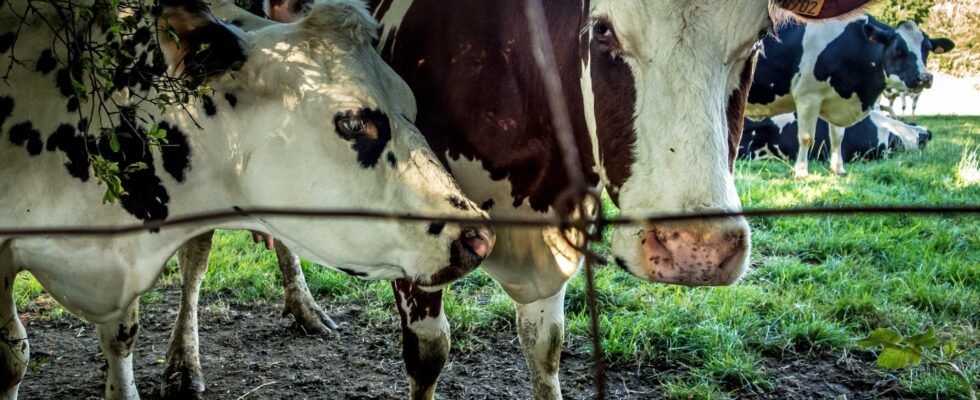In an attempt to stem the outbreak of diseases affecting sheep, ewes and cattle in France, the State will order several million additional vaccines and make them available free of charge to farmers, the resigning Minister of Agriculture Marc Fesneau announced on Friday, August 30.
The number of outbreaks of bluetongue serotype 3 has practically doubled in one weekrising to 342 confirmed outbreaks as of August 29, according to a new report on this disease which has been spreading rapidly since its first detection in early August in northern France.
With cases having been detected in Saône-et-Loire and Orne, “we are expanding the area” in which vaccines are provided free of charge to farmers, “because here we are in a race against time”, announced the minister during a trip to Fangy in Saône-et-Loire. The area now concerns “70% of the departments”, he specified, and extends to the Rhône-Alpes region in the south and the Pays-de-la-Loire region in the west.
The government will pay 14 million euros for 5.3 million additional doses, in addition to the 6.4 million doses already ordered.
The Ministry of Agriculture also reminds in a press release that all breeders are encouraged to test their animals in case of suspicion of FCO of all serotypes, the costs of the tests and the veterinary visit being covered by the State throughout the country. Before the appearance of FCO 3, French breeders had been facing FCO serotypes 4 and 8 for several years. FCO 8 has seen a resurgence in recent weeks in the south of the country. A vaccine, different from that against FCO 3, exists and was covered by the State from 2008 to 2018 but is no longer covered for this epizootic, now considered endemic in France.
Doses of MHE vaccines
The minister also announced the order of two million doses of a vaccine that has just been approved against epizootic haemorrhagic disease (EHD), a separate epizootic disease that particularly affects cattle in the southwest of the country.
First detected in September 2023 in France and dormant in livestock farms this spring, it has resurfaced in recent weeks. These vaccines, which will protect one million cattle, will also be free but distributed “according to a vaccination strategy that will be developed quickly in consultation with the sectors”, the ministry specifies.
The detection of these diseases does not lead to the slaughter of animals, unlike bird flu. They are not transmissible to humans but can weaken herds, be fatal to pregnant young and, in some cases, lead to the death of the animals.
